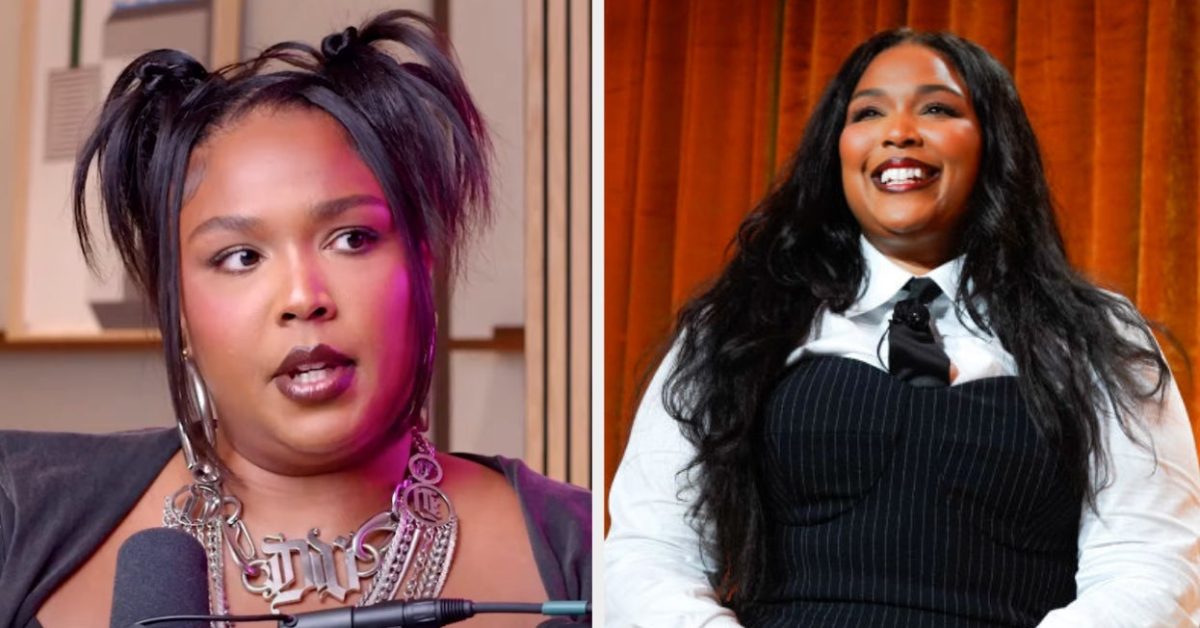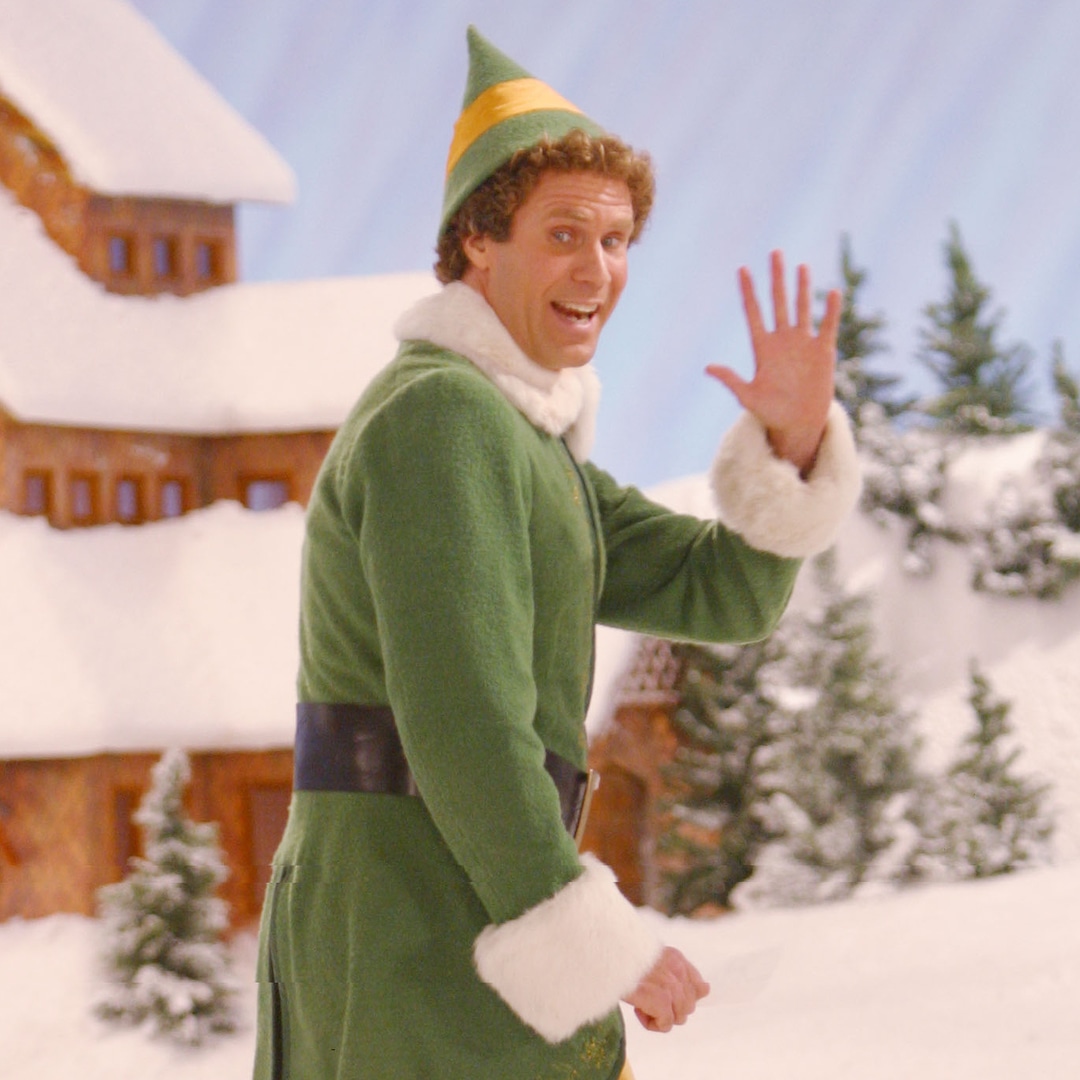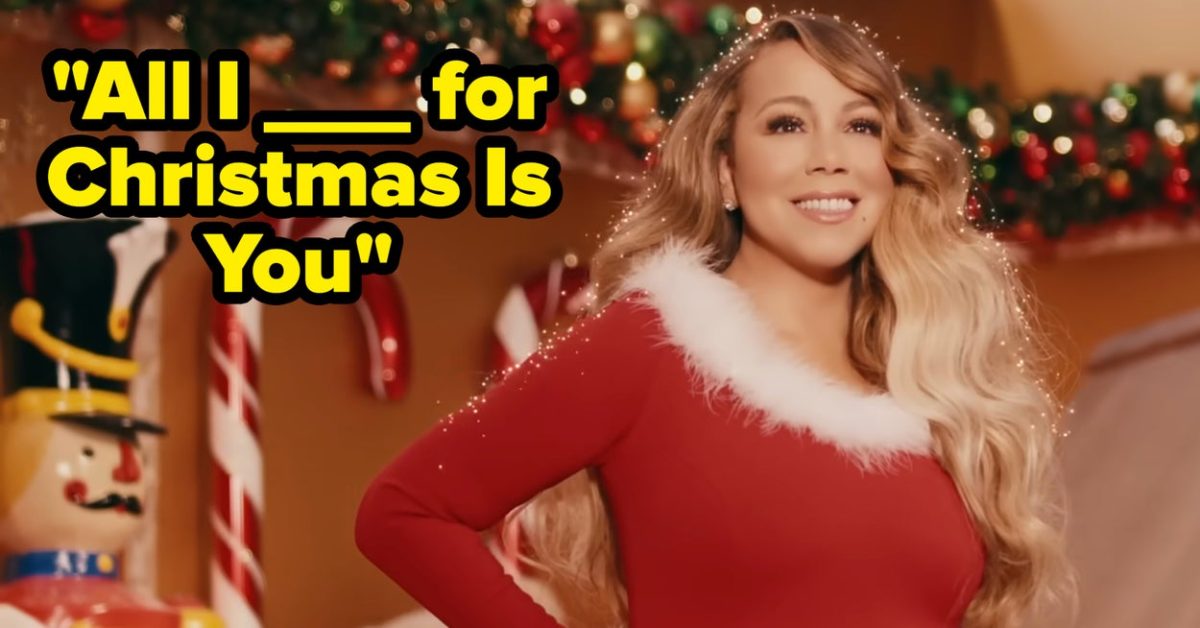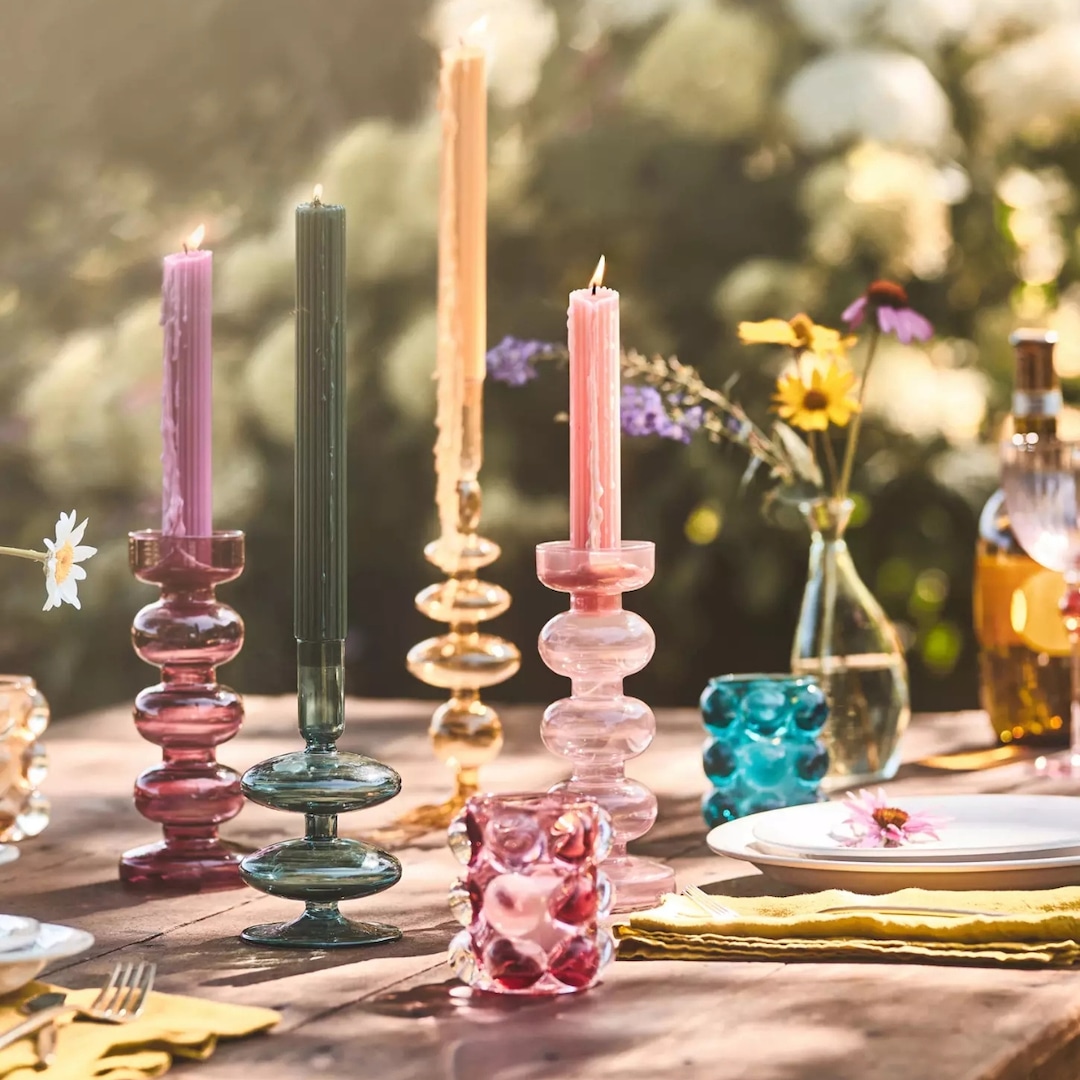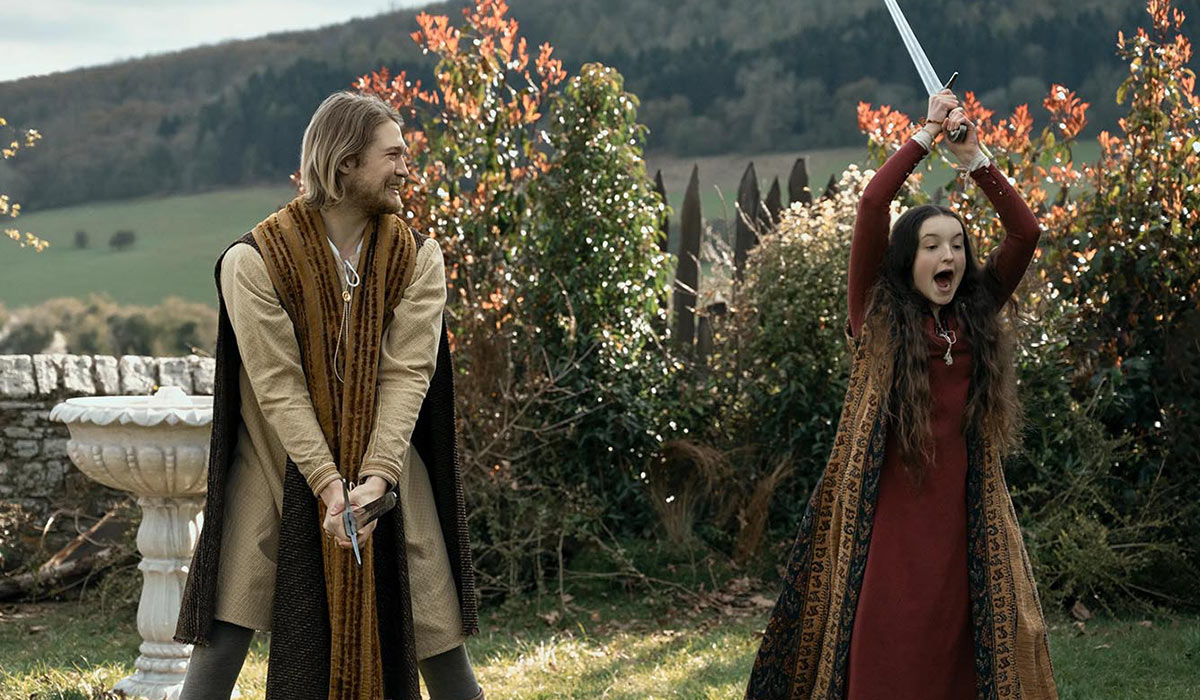
Lena Dunham Flies With ‘Catherine Called Birdy’ [Interview]
Jan 25, 2023
There is a movie that opened in theaters on Friday from a well-known female director that should be on your radar but probably isn’t. No, it’s not Olivia Wilde‘s oversaturated “Don’t Worry Darling.” It’s the second feature film from Lena Dunham in the past 12 months, “Catherine Called Birdy.” And, frankly, it’s a joy.
Really.
READ MORE: “Catherine Called Birdy” Review: A delightfully ribald period comedy from Lena Dunham [TIFF]
Chances are you haven’t heard of “Birdy” yet because, like Netflix, Amazon Studios no longer spends resources driving moviegoers to see their films in theaters. Instead, it’s a token limited release before a more focused launch on Prime Video, which in this case, is Oct. 7. That’s unfortunate because Dunham has fashioned an incredibly entertaining romantic comedy (or is that dramedy?) that deserves to be experienced on the big screen.
Adapted from Karen Cushman‘s 1994 children’s novel, “Birdy” centers on Lady Catherine (Bella Ramsey), a teenage girl in the 13th century who is living as happy a life as possible in the Medieval Era. That is until her father, Lord Rollo (Andrew Scott), desperate to save his English manor, attempts to wed her to collect a lucrative dowery. Of course, the free-spirited Birdy has no intention of participating in this madness and makes it as extremely difficult as possible for him. The film mixes modern-day social constructs with wonderful turns from both Ramsey and Scott with a delightful ensemble cast including Billie Piper, Joe Alwyn, and a scene-stealing Sophie Okonedo.
Dunham, who has had her share of ups and downs since HBO’s “Girls” became a phenomenon a decade ago, jumped on the phone earlier this month to discuss her latest endeavor and the first top of conversation was those fantastic reviews.
“I mean, honestly, it’s such a phew for me, like phew meaning P-H-E-W,” Dunham says. “I love this movie so much, and I’m so protective of the cast. And I adore them, and I’m so protective of Karen, the author. So in a way, I just felt like as the director I’m just the guardian of these amazingly talented people. And so just being able to tell them that their work is being received joyously is a really, really, really huge gift. And obviously in my now over a decade career, I know what all different kinds of responses feel like. And so, I know when you listen to the good stuff, you also have to listen to the bad stuff. And so to take responses with a grain of salt, that doesn’t mean I’m not intensely grateful. And I think my experience means I know just how rare it is when people do connect to something.”
During our conversation, Dunham touched on the attention to detail paid to the film’s narration (the novel was conveyed in a diary format), the contributions of Scott to his character, finding a more appropriate ending (minor spoilers), and the possibility of a sequel (if such possibilities are possible).
_____
The original book is almost 30 years old. From my knowledge, it doesn’t seem like anyone ever tried to make anything out of it before, or maybe it was one of those projects that were always in development. How did you become involved in getting it to the screen?
I don’t think anyone did try to make it into a movie before, which is wild because I feel like it’s so cinematic. But it’s pretty simple, which is it was my favorite childhood book just bar none. If someone asked me what my favorite book was, that was it. I read it for the first time when I was 10. I re-read it dozens of times afterwards. And so when “Girls” came out and I was sort of asked, “What is your dream project? What piece of IP would you want to adapt?” This was the one. And so in late 2012, early 2013, I wrote to Karen Cushman, the author, and I optioned it myself. I don’t know how I had the foresight at that age to think, “I’d like to not attach this to anyone except me.” I just had an instinct about it because it took a while to find the right partner. And ultimately, that was Tim Bevan at Working Title, who obviously has a lot of experience with both period pieces and comedies and had the right attitude to unite the two. And we took it from there.
Knowing that this was one of your favorite books and it was clearly in your head for a long, long time, what was the one thing that was most important to you when you were sitting down to adapt it? What had always been in your mind, “If I made this as a movie, I need to do this”?
I think the first thing was the idea of this voiceover because the book so kind of lives and dies by the specificity of Birdy’s voice, which I felt would get lost if we didn’t have the opportunity to be in her head in this diaristic way. And so it was figuring out how do you make that voiceover an effective device? Because voiceover can be incredible. Think Linda Manz in “Days of Heaven” narrating that movie. Voiceover can also sound like a last-minute decision that was made in post to make sure that people understand the general thrust of what you’re trying to make. Sorry to use the term thrust. I think that, for me, making sure the voiceover was really baked into the film. I mean, we even timed the scenes based on how long Bella’s voiceover would take and then really refining it at every stage of the movie to make sure that Birdy’s voice was really what was sort of leading us.
The other really interesting thing about your adaptation is how you modified the ending. Someone who walked out of my screening noted, “Oh, Lena changed the ending in such a good way.” And I don’t want to necessarily give it away, it’s not like this is a massive spoiler movie. But you did make a change in terms of Shaggy Beard. Was that something you’d always thought of before you made the movie?
I think I always had a sense that if you were going to have almost two hours of the audience falling in love with Birdy that Karen’s ending is… I love Karen’s ending in that it is really honoring the intelligence of teenagers and it’s not pandering. And it’s historically accurate. And it sort of speaks to the fact that at this time in history, the most women could hope for was a better version of a not-great fate. And for me, I really wanted to try to both hold true to the fact that Birdy is not suddenly going to become a landowner and a business owner and someone who has total control over her destiny. But at the same time, I didn’t want to end the film with this character sort of forced into adulthood before her time and trapped if she didn’t want to be in it.
And also, now that we have this new kind of conception of the father that I came to with Andrew, I think that we really wanted to give him and his daughter a moment to connect so that he wasn’t just this kind of hyper-masculine brutish character, but that there was also real layers to him. We were a month out from shooting when the pandemic happened and I was heartbroken. I was prepped and [we had the] cast. And I was ready to get on set. And then we stopped and it was hard and sad. But it forced me to really think about the script and, “Are there things that I can do to make it better?” And so then the entire dual montage, the dual scene sequence of the film really came out of that pandemic time and that time to think. And that was a really, really positive result of something that was kind of uniformly negative.
And how did you find your Birdy? Had you seen Bella in something else? Did you do auditions?
I had seen Bella in “Game of Thrones.” I had seen her in “Judy.” I had seen her in a movie called “Two for Joy,” by a filmmaker called Tom Beard. And I always thought she was incredible. And then my casting director, Nina Gold, when she read the script, we had our first meeting and she said, “I think I know who this is.” And she showed me a picture of Bella and I saw her face. I saw her face, and I felt like, “Yeah, that’s her.” And having seen her previous work, I felt pretty confident she could do it. But then when she came in and read a scene, it was like this feeling that she was just elevating the writing. She was upping everybody’s game. And I knew that had to be the gal. And I feel so lucky it is. I adore Bella, both professionally and personally, and she’s become someone who just means so much to me in my life.
Obviously, you always work with a casting director, but you talked about the fact that you’d re-written the father character and Andrew brought a lot to him. Had you thought of Andrew for him or was it he just was perfect for what you had written on the page?
The minute I saw Bella, I thought, “Oh my God. That child’s father is Andrew Scott.” He was just of his big “Fleabag” awards run. And I thought, “This guy has got every offer in the world, which is true, and there’s no way I’m going to get him to do this.” And we had a phone call and we just connected deeply and started to talk about phase to kind of push the father character into a different territory, where we kind of understand that he too is a more modern soul trapped in this more old-fashioned world. And so the thing about Andrew is he’s so literary and so thoughtful in his theater background, which means he’s not just reading the text. He’s really subtextual in his readings of things. And so he would always just suggest an idea or bring an aspect to a scene, that was deeply emotional, totally dramatic, really satisfying to direct, and hopefully to play. And so through all of our rehearsal process and rewriting process, Andrew he pushed me, and not just the mark of someone great is that he didn’t just push me on his scenes. He gave me thoughtful notes about every scene, even the ones that he wasn’t in, and respected my vision while also kind of giving me a sense of what he saw could be deeper.
There is this sense of almost effortlessness in many of the scenes. It doesn’t feel like anyone’s “acting.” Everyone feels very relaxed, even in the tensest scenes. How do you, as a director, get your actors to that point on set?
Well, that’s amazing to hear, obviously. And I think the thing that I said to these actors is I said, “I don’t want you to feel like you are being forced into some kind of stiff period piece energy. I want you to read these lines as you would any modern piece. And you can step on each other’s words. You can say, ‘Um.’ You can say, ‘O.K.’ You can pause. Let this be as loose and wild as anything.”
I don’t even know if she wrote another book about Birdy, she seems like a character ripe for a sequel. Has that ever crossed your mind at all?
I mean, she’s my favorite character in the world. I mean, sorry, Hannah Hoback. I’m a Birdy fan. So obviously, any chance to do something or do something with Bella, there is not a second book. Karen’s written a series of amazing children’s books, many of them set in times around this. She has a book called “The Midwife’s Apprentice” that is about another young woman in a very complicated time. And I love it because it focuses on women’s reproductive health, which is a concept that is dear to Karen. And so, I mean, someone joked that we should do the “Birdy” TV show. And a woman actually came up to me at TIFF and pitched an idea for a sequel, which I cannot take because I would owe her enormous screenwriting credit. But her idea was not bad.
What was that night like for you?
It was amazing. I mean, I was obviously shaking beforehand. I think it’s just that it is such a deeply important story to me that it was just impossible for me to separate myself from the reaction. I kept saying to my husband, “Are people laughing? Are people laughing? Are people laughing?” And he was like, “Can you hear them? They’re next to you laughing.” But I was sort of out of body. It had just been so long getting to this point that I was out of body, to be honest.
I know you’ve worked on “Industry” and you had “Sharp Stick” also come out this year. Do you know what’s next?
[It’s an] amazing thing to get to make two movies so close together, an amazing and rare thing. And “Sharp Stick” was this kind of little, pandemic experiment, where I got to work with these unbelievable actors at this very specific moment and push myself as a director in new ways. And I just feel so lucky that I got to make these two things. I feel lucky and thrilled and surprised. And that being said, I have a few things, both feature-length projects and I’d really like to make another television show. I would really like to make another television show. I feel like it took me a little while to sort of get my spark back around episodic TV because I had been doing it for the majority of my 20s. And now it is back and I’m ready to take everything that I learned in making these features and return to that medium.
“Catherine Called Birdy” is now playing in limited release. It debuts on Prime Video on October 7.
Publisher: Source link
"All Of This Came Out Of Nowhere": Lizzo Publicly Responds To Sexual Harassment Lawsuits After Being Dismissed From A Case
"We're continuing to fight the other claims."View Entire Post › Disclaimer: This story is auto-aggregated by a computer program and has not been created or edited by filmibee.Publisher: Source link
Dec 27, 2024
This Fan-Favorite Elf Quote Almost Didn’t Make It Into the Film
11. Determined to maintain the old school aesthetic, Favreau told Rolling Stone he didn’t want to make the film “a big CGI extravaganza," only using the technology to add some snow. “I like motion-control, models, matte paintings,” he explained. “It…
Dec 27, 2024
Guess The Missing Word: Christmas Song Titles
The holidays are here, and there's no better way to ring it all in than a seasonal song or two. So test your yuletide knowledge by identifying the missing word in the 14 holiday songs below. Good luck! Disclaimer: The…
Dec 26, 2024
Score an Extra 40% off Fashion & More
Our writers and editors independently determine what we cover and recommend. When you buy through our links, E! may earn a commission. Learn more. Even on Christmas Day, Anthropologie has your back with an extra 40% off sale that’s practically a…
Dec 26, 2024








